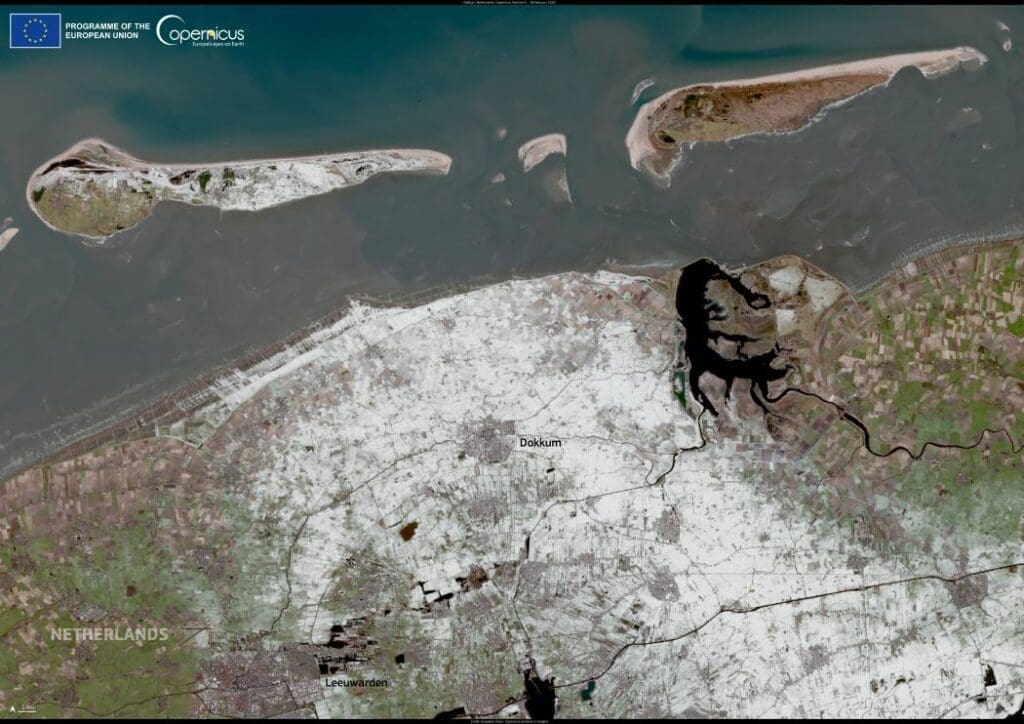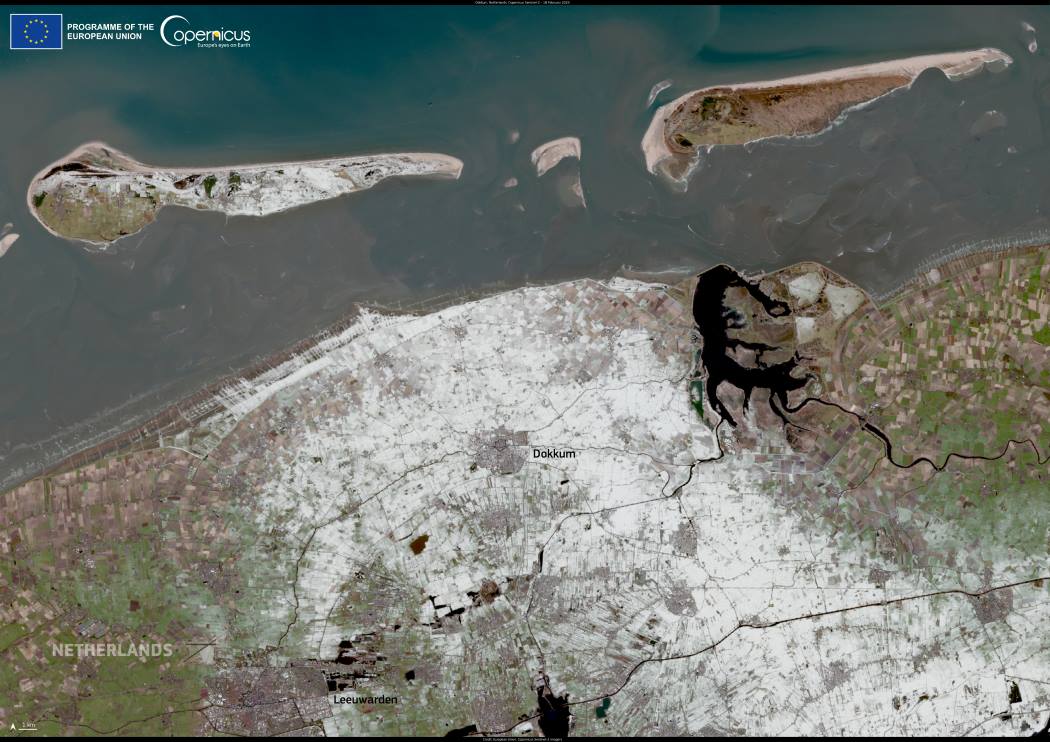Dokkum, a historic city in Friesland, Netherlands, lies near the Wadden Sea, a UNESCO World Heritage site known for its tidal flats and barrier islands. The surrounding landscape blends agriculture, wetlands, and coastal ecosystems, supporting a rich diversity of wildlife.

This image, acquired by one of the Copernicus Sentinel-2 satellites on 18 February 2025, reveals a snowy landscape blanketing North Friesland. The white fields contrast sharply with the Wadden Sea to the north. The nearby islands of Ameland and Schiermonnikoog, with their sandy shores, are also visible along the coast.
By monitoring coastal ecosystems, Copernicus provides valuable data for environmental management and climate research in this ecologically significant region.
Featured image credit: Credit: European Union, Copernicus Sentinel-2 imagery




